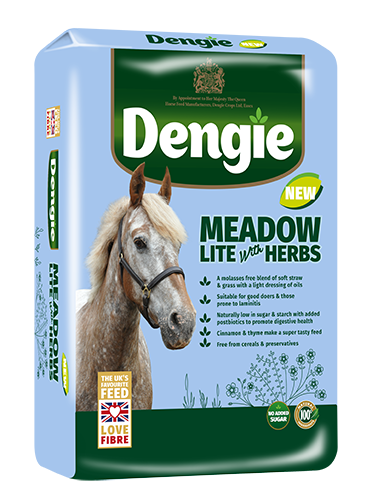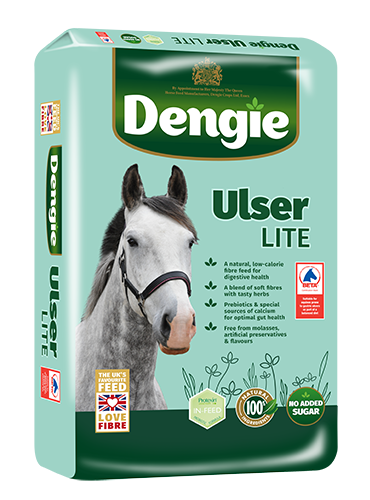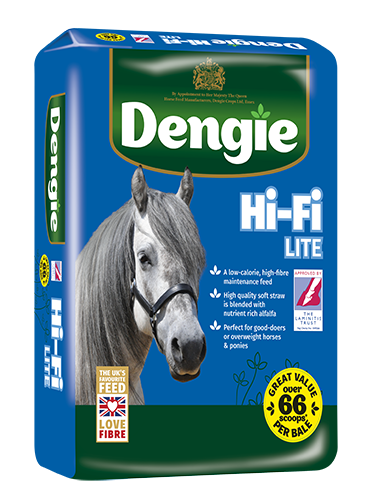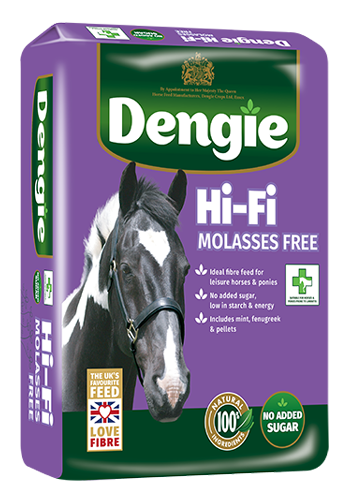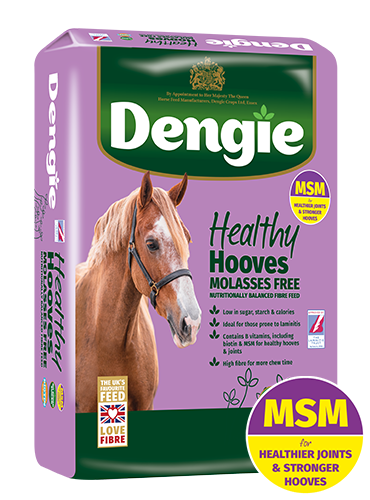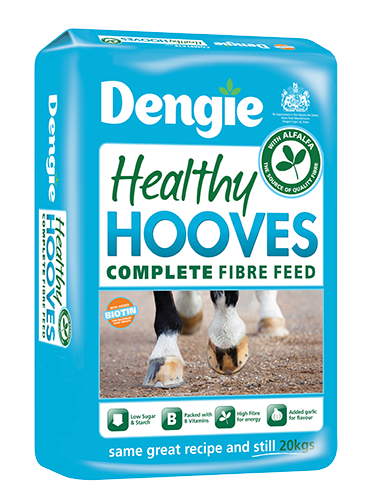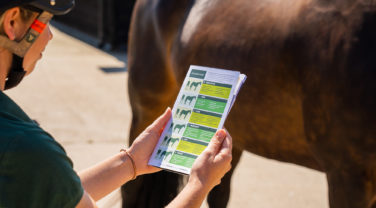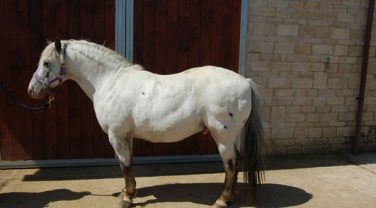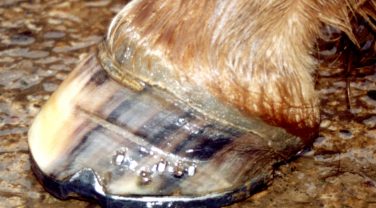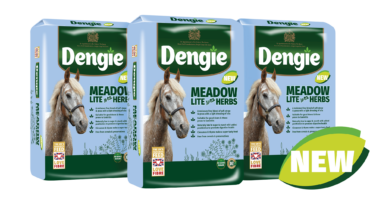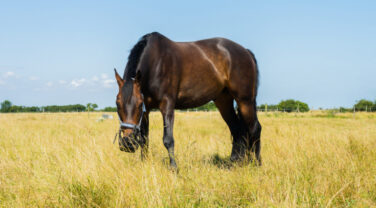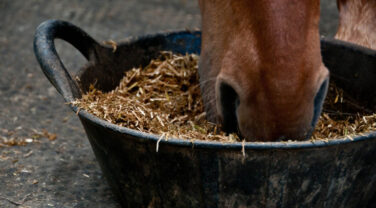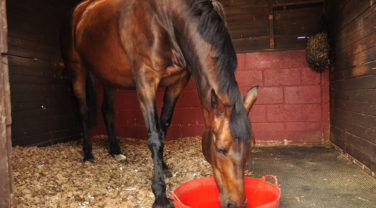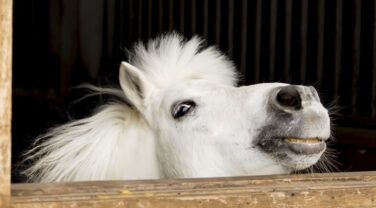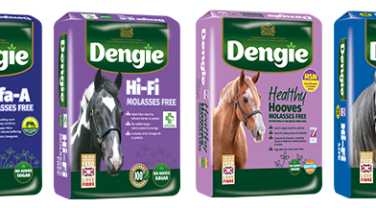
Laminitis & Good Doer
If your horse or pony is a little on the chubby side, then you’re not alone! Maintaining your horse at a healthy weight can be a real challenge and studies report that between 30 and 50% of the equine population is overweight or obese (Furtado et al, 2020). Feedback from vets and nutritionists suggests this figure could be considerably higher in leisure horses specifically.
Being overweight significantly increases the risk of laminitis in horses and ponies which is a potentially fatal disease. It is therefore vital to take action early if your horse does become overweight or obese.. Laminitis is just one of the health risks associated with being overweight or obese. We have lots of information about feeding and managing your horse as well as helpful tools that help you identify risk factors for issues such as laminitis.
You can also read our tips for managing an overweight horse for more information.
What you need to know and do
The following actions are the most important things you can do to reduce the risk of laminitis in horses:
- Restrict access to grazing – stabling your horse means you can get complete control over what they eat – this is often the most effective way to achieve weight loss as grass is usually the greatest source of energy and sugar in most horses’ diets.
- Feed sufficient low calorie forage – aim for 1.5% of bodyweight on a dry matter basis per day to maintain digestive health and satisfy your horse’s need to chew.
- Use low-calorie fibre feeds – they can be used to replace forage and are really useful if you only have access to high quality forages. They are the ideal feed to mix a supplement or balancer with to slow rate of intake.
- Ensure they have a balanced diet – restricted access to grass not only reduces energy (calorie) intake but also essential vitamins and minerals.
- Monitor body fat – you can use a condition score chart to spot when your horse is changing the amount of fat they are storing
Horse Laminitis Risk Calculator
There are lots of different factors that increase a horse or pony’s risk of developing laminitis. We have developed a questionnaire to help you ascertain your horse’s risk level and identify which areas are the greatest risk
Our Weight Management Guide
One of the most significant risk factors for laminitis is obesity. If you want to reduce your horse or pony’s risk of getting laminitis it is essential that you maintain them at a healthy weight. We know this is not always easy; studies have shown that horse owners tend to underestimate their horse’s body fat score and think they are thinner than they are. Finding the balance between giving enough fibre to maintain a healthy digestive system without promoting weight gain can be tricky.
Click here to view our Weight Management Guide to learn more about managing your horse’s weight and which products in the Dengie range are suitable for those prone to laminitis.
Horses with Laminitis – We’re here to help
If you find all the information about nutrition and feeding horses at risk of laminitis confusing and overwhelming, we are here to help. Our team of qualified and experienced nutritionists will help you with the whole diet including advice on turning out to pasture, forage options as well as the bucket feed. You’ll also find more related information below that may help answer common questions – or please contact our team direct for feed advice.
Frequently Asked Questions
How do I put weight on my laminitic safely?
The key is to use horse feeds that are low in sugar and starch which usually means they contain higher levels of fibre and oil which are safer sources of energy. High or long term feeding of sugar and starch based feeds are increasingly being linked to insulin dysregulation (ID) which is a predisposing factor to laminitis. Be careful that you don’t over-condition your horse as the greatest risk factor for laminitis in horses is being overweight. Unfortunately, “fat” is becoming normal – research has shown that horse owners frequently underestimate the condition score of their horse meaning they are underestimating their risk of laminitis too. If you are in any doubt, ask a nutritionist to assess your horse and don’t succumb to peer pressure to have a cuddly pony – cuddly might be cute but it isn’t healthy!
If you really do need to promote weight gain then feeds such as Alfa-A Molasses Free and Alfa-Beet are really low in starch and sugar but contain moderate levels of energy (calories). Alfa-A Molasses Free is a medium energy feed but contains around 10 times less starch than a cereal-based feed with a comparable energy value.
How effective are grazing muzzles?
A couple of studies on the effectiveness of grazing muzzles have explored this including one by our very own nutritionist Tracey Hammond. The general estimate is a reduction in intake of about 75-80% depending on the time of year. Be aware that if you take the muzzle off and let your horse or pony graze freely, they can consume their total daily requirement in just a few hours! Some horses and ponies have adapted their grazing behaviour to increase their intake even when wearing a muzzle, so do keep an eye on what they are doing!
Why do products approved by the Laminitis Trust contain molasses?
Molasses itself is not dangerous or harmful to horses – it has been used as an ingredient in horse feeds for decades. It is a source of sugar and if used in large amounts, can significantly increase the amount of sugar a horse consumes. The key point is how much molasses is added to a feed and how much sugar the other ingredients contain – this determines the overall sugar content and therefore suitability of a feed for a horse or pony prone to laminitis. The Laminitis Trust have strict criteria based on findings from independent research as to what levels are acceptable. If the total sugar and starch content of a feed is below the levels set by the Trust, then that is what determines the suitability of the feed for a pony or horses with laminitis or those prone to this.
What’s the difference between Hi-Fi Lite and Hi-Fi Molasses Free?
Hi-Fi Lite combines chopped straw and alfalfa with a light molasses coating. Hi-Fi Lite provides 7.5MJ/kg digestible energy, 7% sugar and 1.5% starch and so is a low calorie, sugar and starch feed. Hi-Fi Lite is particularly useful for weight loss if a low-calorie forage replacer is required for good do-ers, or overweight horses when only haylage may be available on the yard for example.
Hi-Fi Molasses Free combines chopped and pelleted alfalfa and straw with a light rapeseed oil coating and the added herbs mint and fenugreek for tastiness. Hi-Fi Molasses Free provides 8.5MJ/kg digestible energy, 2.5% sugar and 1.5% starch. Use Hi-Fi Molasses Free if your preference is for a molasses-free feed or if an exceptionally low sugar and starch ration is required for example for those with Equine Metabolic Syndrome.
My horse doesn’t have a bucket feed but is still overweight, what should I do?
If your horse isn’t receiving a bucket feed but is overweight, then energy or calories are being over-supplied by grazing and/or forage. It is these that need to be managed in order to encourage weight loss in conjunction with increased exercise.
Tips for managing grass access to help reduce the risk of horses with laminitis include turnout on a no grass area with supplementary forage, strip grazing, or the use of a grazing muzzle. When it comes to forage, mature forages with a lower digestibility will provide less energy. Look for coarse, stalky hay or appropriate low-calorie hay replacers. Straw can replace up to 50% of the total forage ration to reduce energy intake, as long as it is introduced gradually into the diet. The overall amount of forage may also need to be restricted to 1.5% of the horse’s bodyweight on a dry matter basis daily to assist weight loss.
Whilst grazing and forage can over-supply energy or calories, UK pasture and forage tend to lack key trace minerals such as copper, selenium and zinc and conserved forage also lacks vitamin E. A low-calorie fibre feed from the Dengie range combined with a balancer or supplement will provide a balanced ration.


